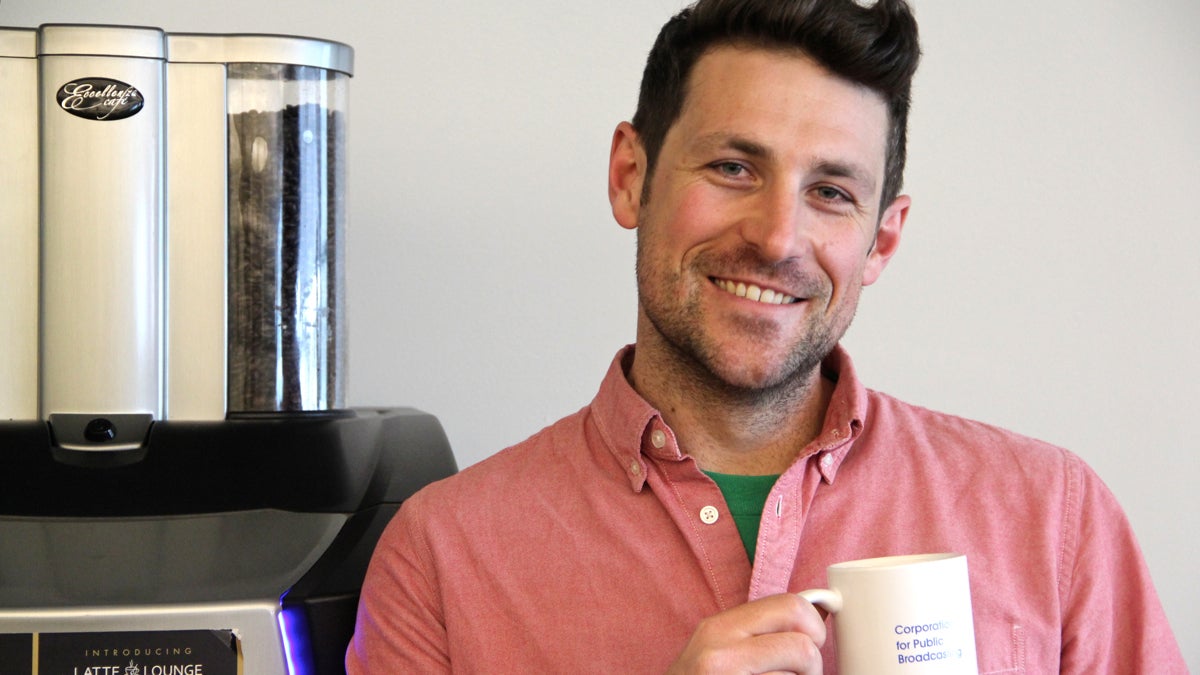What happens when our Pulse ‘Lab Rat’ goes caffeine free?
Listen
Lab Rat Zack Seward quit coffee for a work week
This week, Zack Seward quits coffee and discovers his true, sluggish inner self.
I quit all caffeine for a week, and here’s what I learned:
1.) Coffee is a magical elixir.
2.) Going caffeine-free is doable but not enjoyable.
3.) We’re all junkies.
“I would wager that caffeine is probably the most used psychoactive drug in the world, maybe second to alcohol…maybe not,” said Michael Grandner.
Grandner is a sleep researcher at the University of Pennsylvania who has looked into how caffeine affects how people sleep. Grandner says it’s a “huge” factor.
“To some degree, many of us turn to caffeine as a way to replace sleep, where rather than sleeping a little more, we’re like, ‘Well, we can drink that coffee in the morning, it’ll get us going,'” he said.
I found out this week that I am guilty as charged.
I use coffee to mask all sorts of sleep deprivation. I have young kids, I work a lot. I’m a journalist, for Pete’s sake! I drink maybe three or four mugs of coffee a day: that’s one or two brewed at home, then a couple at work. Free coffee machines, especially good ones, are hard to resist.
I spoke with Grandner on Day 1 of my caffeine-free experiment for not so much a physiological explanation of what to expect, but a behavioral one.
“In terms of how you’re going to feel, you’re probably going to feel more sleepy,” he warned. “Usually when you take away a drug, what’s going to happen is the opposite of whatever that drug does. So if the caffeine’s been keeping you awake, you’ll probably find yourself having a little more trouble keeping your eyes open, you may find yourself having a little more trouble having quicker reaction time, for example.”
I found most of this stuff to be true, especially the sleep stuff. Without my coffee crutch to lean on, I found myself passing out while putting the kids to bed, waking up at midnight, not getting back to sleep till 3 a.m.
“To some degree these are probably the effects of going away from the caffeine, not necessarily where your normal functioning is,” Grandner said. “But to some degree it might also be unmasking some the issues that you were sort of covering up with the caffeine.”
So is this me. The sleepier, foggier, dumber me. The real me that I’ve been masking all these years?
“Fortunately, probably not,” Grandner empathizes.
So diplomatic.
But is coffee bad for you?
That’s the thing that got me interested in this topic in the first place. Every few years it seems like there’s a different verdict on coffee and your health. This year, however, there was a fairly big proclamation from a board of nutritionists that advises the federal government.
“How much coffee is safe to drink for the average American?” Tom Brenna said. “That’s the question that we took up.”
Brenna is a nutritionist and chemist at Cornell University who sat on the 2015 Dietary Guidelines Advisory Committee. And when they announced their findings in February, headline writers had a field day: up to five cups of coffee a day is A-OK.
“Right, so let’s be clear about what we mean by five cups of coffee,” Brenna said. “We’re not talking about five Ventis, we’re talking about old-fashioned, eight-ounce cups that would deliver up to 400 milligrams a day of caffeine.”
And even if you’re on the high end of the recommendation — and reports show that most Americans (at about 1.7 cups a day) are not — Brenna’s opinion is that you shouldn’t worry too much.
“The data indicate that if anything, it was even a little bit protective,” he said. “None of us saw any evidence that up to 400 milligrams a day for the average person will be a problem.”
Now, the recommendation for pregnant women, for instance, is to still cut back—to one, maybe two small cups a day. But Brenna says the panel, which conducted a review of dozens of recent studies, didn’t find evidence linking caffeine consumption to premature births or anything like that.
The only thing that Grandner, the sleep guy brought up, is that lots of studies do show that people who don’t sleep much are more likely to suffer from obesity, heart disease, diabetes…bad stuff like that.
So why does coffee have a bad reputation?
Coffee and cigarettes used to be very tightly linked. Researchers at Harvard say that early studies seemed to have a hard time differentiating the negative effects of smoking versus coffee drinking.
Brenna brought that up, too.
“Back when I was in high school I worked in a dairy bar and we used to serve breakfast,” he said, “and everybody came in for their coffee and cigarette. That was how people started their day.”
WHYY is your source for fact-based, in-depth journalism and information. As a nonprofit organization, we rely on financial support from readers like you. Please give today.



